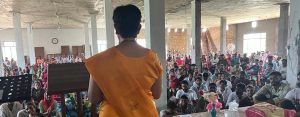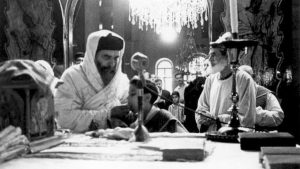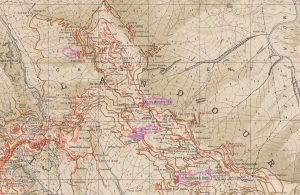Adolf Hitler, as he gathered together his own genocidal aspirations, once asked, ‘Who, after all, speaks today of the annihilation of the Armenians?’ (see here). The rationale is easy to follow. If they didn’t remember the Armenians, they won’t remember the Jews. He was wrong about the Jews. They were remembered. He was right about the Armenians. They were forgotten.
Here is a map of the countries (in dark green, with light green signifying some sort of ‘regional’ recognition, whatever that means) that fully recognise the Armenian Genocide. Not so many of them…
I guess this map bears witness to the influence of Turkey in the world today. There are so many countries wanting to keep in good standing with them. Although I do expect far more from my own country, sitting there as a grey comma on the bottom-right corner of the global page. Shame on us!
Building up to this year’s commemoration of the genocide, I read Elif Shafak’s The Bastard of Istanbul. How good a writer is she? Just exquisite. It is a story with different layers to it.
Foodies will love the way each chapter is given a food title (Cinnamon, Garbanzo Beans, Dried Figs, Golden Raisins etc) – with that specific food mentioned in passing in the chapter, but then with these foods feeding into a recipe later in the book.
Another layer has to do with families, two of them – with the focus on a young woman from each one. The author lingers, again and again, in her descriptions of people: their appearance, their character, their secrets, their hopes etc. I felt myself drawn irresistibly into these two sad and dysfunctional family circles.
Another layer?! Well, you guessed it. One family is Armenian Christian and the other family is Turkish Muslim. The genocide is the backdrop to the way their lives become separated and then intertwined down the generations and across the oceans.
[NB: the plot shares a feature with the recent Broadchurch series – and so not for the faint-hearted].
This morning I woke to a link posted on facebook by a friend, with photos of the genocide (the map above is from this collection of photos). This is what prompted me to drop what I was doing and to write a quick post to highlight this day once again. Grainy. Black-and-white. Authentic. Take time over each photo, with the descriptions and the narrative. Don’t rush it.
I know what I hope 2017 will include. This new movie on the Armenian Genocide, The Promise. The early reviews are not that convincing, but amidst my traveling (I don’t expect it to be in Indian theatres) I hope I have the opportunity to see it.
nice chatting at the start of such a sad couple of days.
Paul
About Me

the art of unpacking
After a childhood in India, a theological training in the USA and a pastoral ministry in Southland (New Zealand), I spent twenty years in theological education in New Zealand — first at Laidlaw College and then at Carey Baptist College, where I served as principal. In 2009 I began working with Langham Partnership and since 2013 I have been the Programme Director (Langham Preaching). Through it all I've cherished the experience of the 'gracious hand of God upon me' and I've relished the opportunity to 'unpack', or exegete, all that I encounter in my walk through life with Jesus.
Recent Posts
Football helps me train preachers. See, when you speak to me about football—or, ‘footie’—I need to know where your feet are before I can understand what you mean. Are your feet in Ireland, or Brazil, or the USA, or NZ—or in crazy Australia? It must be the most fanatical sporting nation in the world. Within…
Having been born in 1959, I don’t remember much about the 1960s. But I have heard a lot. Hippies. Drugs. Rock ‘n Roll. Assassinations. Moon-walking. A quick trip across to ChatGPT informs me immediately that it was ‘a transformative decade across the world’—marked by the civil rights and feminist movements, Cold War tensions, consumerism and…










